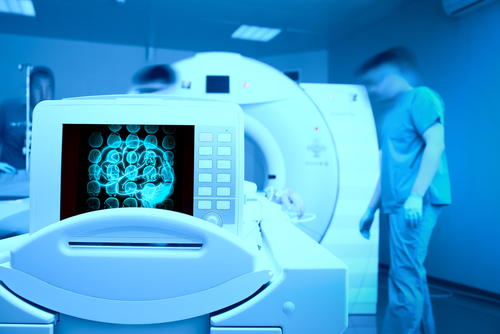Progressive MS Trials May Need a ‘Tailored’ MRI Approach, Researcher Tells ACTRIMS 2016
Written by |

Dr. Daniel S. Reich with Johns Hopkins University is giving an oral talk on “MRI as an Outcome Measure in Progressive Multiple Sclerosis” at Friday’s ACTRIMS Forum 2016. This year’s meeting focuses on progressive MS, and runs through Saturday, Feb. 20, in New Orleans.
Magnetic resonance imaging (MRI) has been the most widely adopted outcome measure in relapsing-remitting multiple sclerosis (RRMS) for decades, with its early success in small baseline-to-treatment trials seeking to reduce the incidence of contrast-enhancing lesions predicting its effectiveness in large Phase 3 trials focusing on clinical outcomes. The availability of a known clinical trial design has promoted the explosion of approved immunomodulatory treatments for people with this type of multiple sclerosis (MS), Dr. Reich reported.
In contrast, no comparable proof-of-concept trial design exists for progressive MS studies, resulting in fewer effective large Phase 3 trials.
In his afternoon talk, Dr. Reich, a professor of Radiology and Neurology at the Johns Hopkins School of Medicine, will present insights regarding why it has been so hard to resolve this problem for progressive MS patients. He also will outline the most encouraging imaging-based methods proposed to date, particularly on measurement of atrophy and MRI signal-intensity alterations that could be consistent with repair.
Dr. Reich suggests there are three distinct options for the use of MRI in patients with progressive MS that might be considered “off the beaten track”:
(1) MRI might be more valuable as an approach for improving progressive MS trials than as an outcome measure per se;
(2) outcome measures for proof-of-concept trials should favor sensitivity above biological specificity;
(3) screening of new therapies to be tested in progressive MS should be done first in early active disease.
In his ACTRIMS’ abstract, Dr. Reich concluded, “unlike the situation in relapsing-remitting MS, progressive MS may not be conducive to a generic set of outcome measures. Rather, MRI methods may need to be tailored to what each specific therapy is broadly expected to achieve (e.g., prevention of neuronal loss, repair of damaged tissue, reduction of compartmentalized inflammation). As such, parallel studies of the same therapies, using similar imaging methods but in preclinical models, should be a high priority.”


